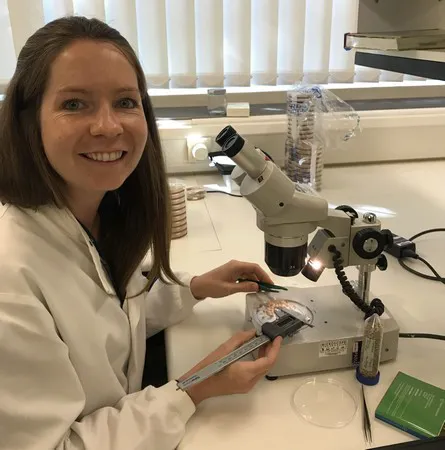CHAP’s database of crop-related organisms has welcomed new seed samples, which will help researchers to support growers in overcoming the troublesome weed, blackgrass.
The National Reference Collection (NRC) was launched last year by CHAP in partnership with CABI and FERA, offering access to and storage of plant and insect material, as well as fungi and bacteria.
Now, one of the largest UK collections of blackgrass (Alopecurus myosuroides) seeds is being made available by Rothamsted Research through the NRC, offering different levels of herbicide susceptibility.

CHAP’s National Reference Collection Technician, Sophie Lane, said: “Blackgrass is a competitive grass weed which has become especially troublesome for growers due to its herbicide resistance. “Not only does it have an impact on crop yield, but it can also cause contamination issues at harvest.
“The NRC continues to grow and host a varied range of samples, so we’re pleased to now offer these seeds through our partner Rothamsted Research and continue to support the latest in crop science R&D.”
Samples include three groups of blackgrass standards – wild-type susceptible, as well as phenotypes exhibiting non-target site resistance and ACCase target-site resistance. Potential use includes efficacy testing for novel crop protection products.
The fourth group of samples includes blackgrass field populations isolated from more than 180 UK sites between 2014 and 2021. Here potential lies in studying genetic changes in blackgrass populations over time and detecting the potential problems of the future.
Miss Lane added: “Although these samples are available for research use initially, commercial use can be negotiated on request. “Welcoming the new samples is all part of our aim to proactively expand the collection, but it’s important to note that we also have the facilities to maintain confidential storage should that be required. Whether it’s accessing or depositing samples, the NRC is here to support.”

 CHAP
CHAP